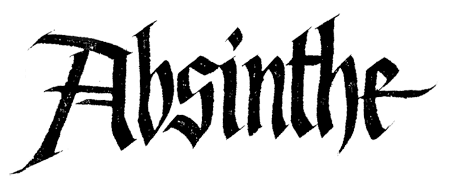
by Jeanne Rose
Absinthe has a nasty
reputation but it was not the Wormwood distillate that causes the
madness but alcoholism.
Absinthe, a strongly
alcoholic drink with a reputation of mythic proportions, is again in
fashion, 90 years after it was banned in France and elsewhere as a
cause of madness. The drink is a double infusion and double
distillation. It is a potent concoction of Wormwood, Fennel,
Angelic, Green anise, etc. The distillate is made and infused with
herbs for 24 hours. This maceration is then distilled again in
copper. The alcohol is neutral grape spirits (alcohol from grapes).
The spirit obtained from this second distillation is colorless but
opalescent and fragrant with a distinctive odor. More herbs are
added giving it that lovely green fairy color and then filtered.
This second infusion is
of green herbs such as Petite wormwood, Hyssop, Melissa, and others.
It will be between 55 percent and 75 percent alcohol.
When made by a master
distiller the Absinthe is both beautiful and delicious. It continues
to fascinate. Several books have been written on the subject
including Hideous Absinthe which focuses on two aspects of
absinthe's history: its role as the elixir in the bohemian literary
and artistic movements of France and Britain and the efforts made to
ban the drink.
As specialty drink, it
can be diluted with cognac - a combination named by Toulouse-Lautrec
"the Earthquake" - and a great drink to commemorate the 100th
anniversary of the great San Francisco Quake.
April, 18, 2006
#
# #
AUTHOR:
Jeanne
Rose has been teaching and researching natural remedies for 33
years, beginning with her first book,
Herbs
& Things, now in its second edition.
To get in touch, to purchase the books, to understand
aromatherapy, herbalism, hydrosols and essential oils, to sign up
for the in-person
Seminars with Jeanne Rose, visit her website at www.jeannerose.net or e-mail for information at info@jeannerose.net.
Jeanne Rose also teaches a distance learning program,
home-study courses both in
Herbalism and
Aromatherapy. She is
Executive Director of the Aromatic Plant Project and can be reached
at info@hydrosols.net. You
may also call 415/564-6785.
All rights reserved 2003, 2004, 2005, 2006. No part of this article may
be used without prior permission from Jeanne Rose.
© Authors Copyright Jeanne Rose,
info@jeannerose.net
|

